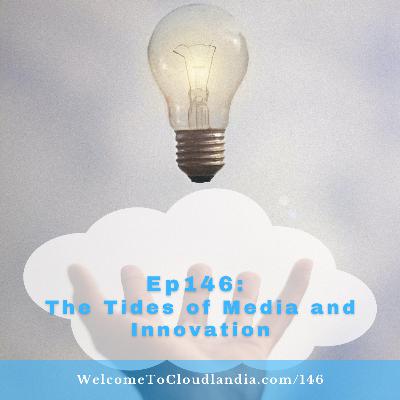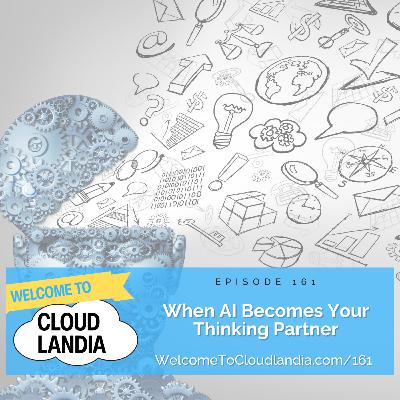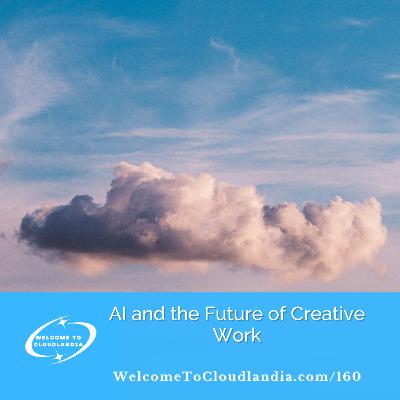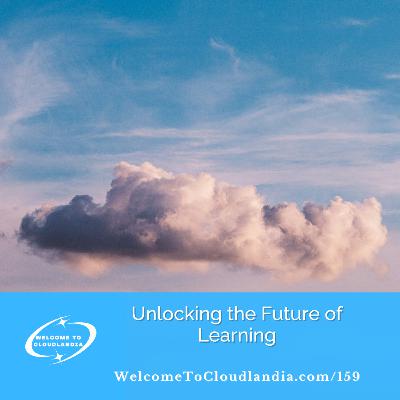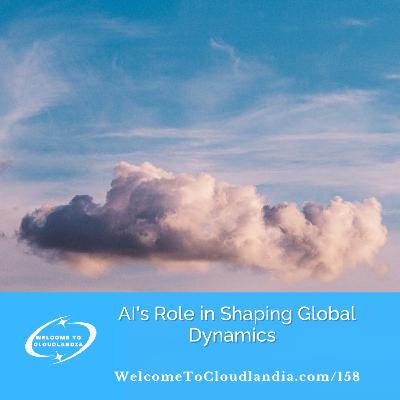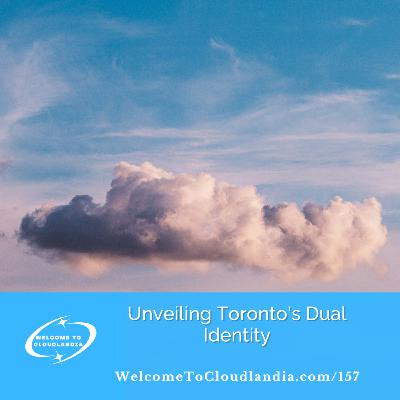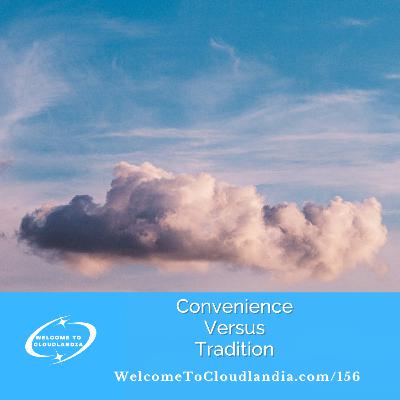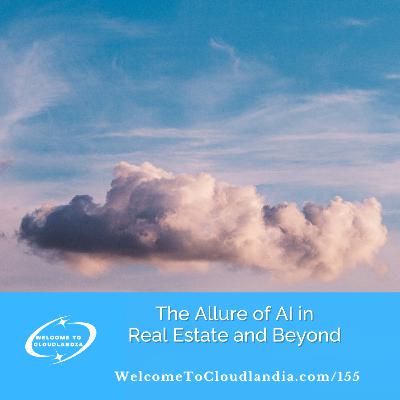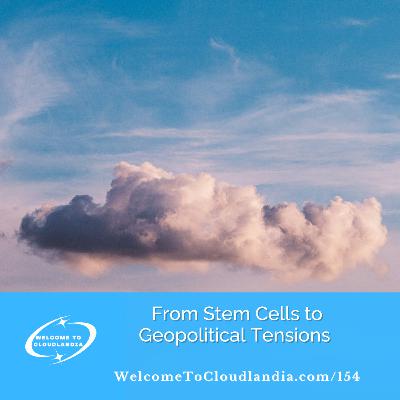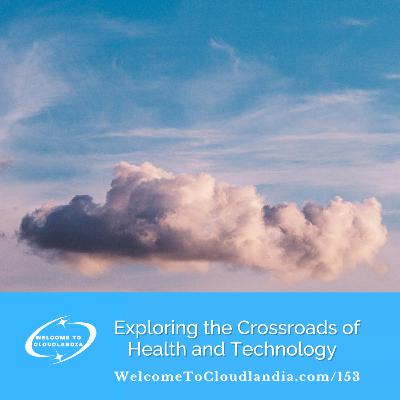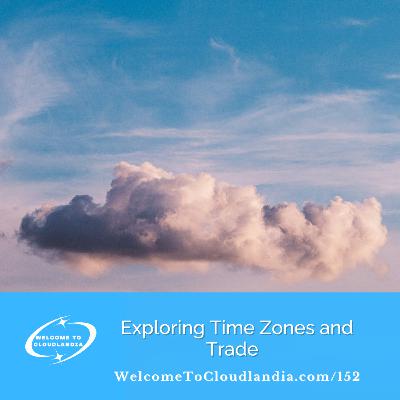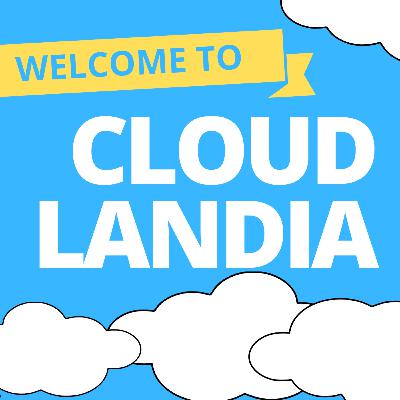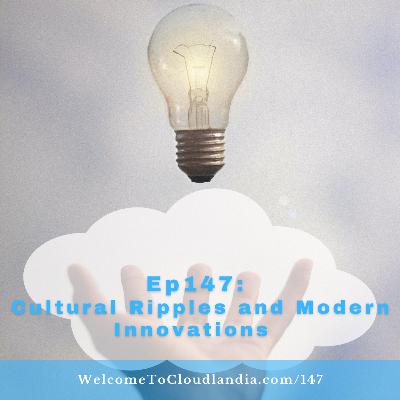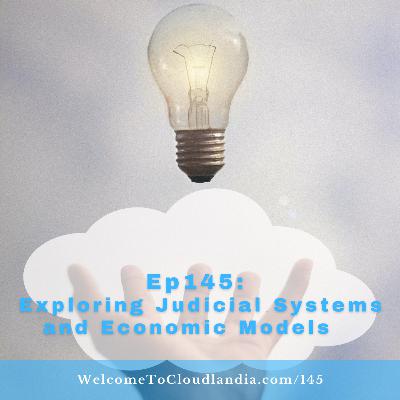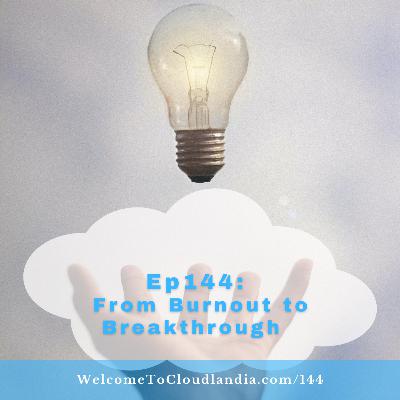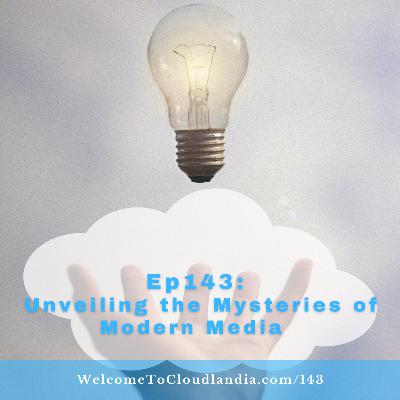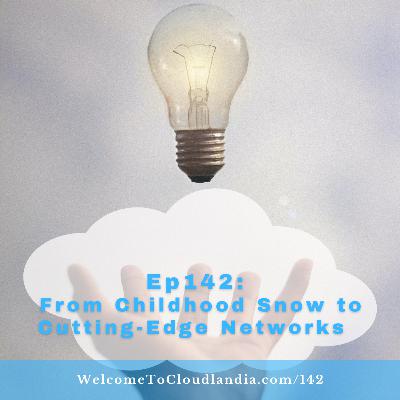Ep146: The Tides of Media and Innovation
Description
In this episode of Welcome to Cloudlandia, We take you through the fascinating evolution of media and communication technologies. We begin by tracing the journey of written communication from ancient Sumerian pictographs to Gutenberg's printing press. The narrative explores how each technological breakthrough transformed our ability to share information, from industrial-era steam presses to the digital revolution sparked by the first email in 1971.
Our conversation delves into the parallels between historical technological adaptations and current innovations. We examine the story of a 1950s typesetter transitioning to digital technologies, drawing insights into how professionals navigate significant technological shifts. The discussion introduces the concept of "Casting, not Hiring," emphasizing the importance of finding meaningful experiences and team dynamics in a rapidly changing world.
We explore the transformation of media consumption and advertising in the digital age. Traditional media platforms give way to digital giants like Facebook and Google, reflecting broader changes in how we create, distribute, and consume content. The conversation touches on audience dynamics, using examples like Joe Rogan's media presence and Netflix's market evolution to illustrate these shifts.
SHOW HIGHLIGHTS
Links:
WelcomeToCloudlandia.com
StrategicCoach.com
DeanJackson.com
ListingAgentLifestyle.com
TRANSCRIPT
(AI transcript provided as supporting material and may contain errors)
Dean: Mr Sullivan, and how are you? I am wonderful. Welcome to Cloudlandia, you are in the Chicago outpost. I am.
Dan: I'm sitting in a very comfortable spot, noise-free. I just had. Have you ever done any IV where they pump you? Up with good stuff.
Dean: I have yeah.
Dan: Yeah, I just came from that, so I may be uncomfortably exuberant.
Dean: Uncomfortably exuberant. That's a great word there, right there.
Dan: Yeah, yeah, uncomfortable to you.
Dean: That's the best.
Dan: Yeah, yeah. So anyway, we have a good service.
Dean: The only thing I miss about Chicago comfortable to you, that's the best, yeah, so anyway, we have a good service. The only thing I miss about Chicago. Dan is our Sunday dinners. Oh the Sunday roundtable.
Dan: Yeah, it's a bit more informal now so we don't have a big gap. It's not like the Last Supper.
Dean: Right, exactly.
Dan: We have Mike Canix coming over and Stephen Paltrow.
Dean: Okay, there you go.
Dan: They'll be on straight carnivore tonight.
Dean: Okay, good, I like everything about that.
Dan: Yeah, it's a little bit of snow on the ground and snowing right now, but it's nice.
Dean: Oh, that's awesome. Well it's winter here. It's like cool. Yeah, I almost had to wear pants yesterday, dan, it was that cold.
Dan: I had to wear pants yesterday, Dan.
Dean: It was that cold I had to wear my full-weight hoodie. But yeah, but it's sunny, it's nice.
Dan: I was just in the hot tub before we got on the call the Chinese intelligence, who are listening to this phone call. They're trying to visualize what you just said.
Dean: Yes, Well, I had a great conversation with Charlotte this morning and something happened. That is the first time I've done it. I literally I talked her ear off. I reached my daily limit of talk interaction. We were talking for about an hour. There's a limit. Yes, I pay $20 a month and I guess there's a limit of how long you can engage by advanced voice tech.
Dan: I'd give her a raise. I'd give her a raise.
Dean: So they were on her behalf demanding a raise. I'd give her a raise. So they were on her behalf demanding a raise from $20 a month to $200 a month, and I could talk to her all I want. I still think it's worth it. It really is. When you think about if we go through the personification again, if you think about what you're getting for 200 I mean, just the conversation I had with her this morning was worth more than 200, yeah, so you want to know what we were talking about. What were you talking?
about well, I am such a big fan of this, the big change uh book that I got for you.
That was oh yeah, by stuff like that. So I really have been thinking that the whole game has really been an evolution of our, of words, pictures, sound and the combination of words, pictures and sounds in videos, right, and if we take the big three the words and pictures and sound, that I, you know, we went all the way back to the very beginning and I told her I said, listen, what I'd love to do is I want to trace the evolution of each of these individually. I want to start from the beginning of how we let's just take text, you know, as an example for words, and so she's taking me all the way back to the ancient Sumerians and the invention of kind of the very first kind of visual depiction of words and language, and then all the way up to the hieroglyphics of Egyptians and then into what would now be what we know as the alphabet, with the Romans and Latin, Romans and Latin, and the way that they were distributed was through tablets and they would post posters and things to get things out there. And so I'll pause there and I'll tell you that the lens that I wanted to look at it through for her is to go back and find, just trace, the beginnings of the capability of it, right, the capability of text. So that meant we had to have language and we had to have the alphabet, and we had to have the tools, the mechanism to recreate these on tablets.
And then the distribution of them. How were they distributed? The consumption of them, how were they received and popularized? And then how were they capitalized? Who turned business opportunities into? What did this new capability turn into business-wise? So, looking, those four, tracking those four things all the way through history, from the ancient Sumerians, all the way through, and so when we got to, you know, from the time the Romans created the thing, the first kind of commercialization was the scribe industry.
That became a thing where people were employed as scribes to you know, to write things, things, and then it came into the monks.
We haven't gone deep dive in these yet, we're kind of going through the surface level of them. But the scribes, you know, were the first kind of commercializing and distribution of the of the things. And then when Gutenberg came along, that sort of popularized and made it even more able to distribute things and on the back of that became newspapers and pamphlets and books. So those were the three primary things for hundreds of years. Until the 1800s we had steam presses which were large, just kind of mechanized, sped up Gutenberg presses, and then the roller presses which allowed to have long, continuous streams of printing, which that really led to the modern newspaper. You know we had almost a hundred years until things were digitized where the entire platform was built on that plateau of things.
And then it turned into newspapers magazines were the dominant things and mail. Those were the big distribution elements for a hundred years and then, once it got digitized, we turned into email.
The first email apparently was sent in 1971 or something, but it took 25 years for that to popularize to the level that everybody had email and it was the primary thing and that led to PDFs and eBooks and distribution on the internet. We talked about bloggers because, if you remember, in the early days of the internet the heroes were bloggers. Those were the sort

